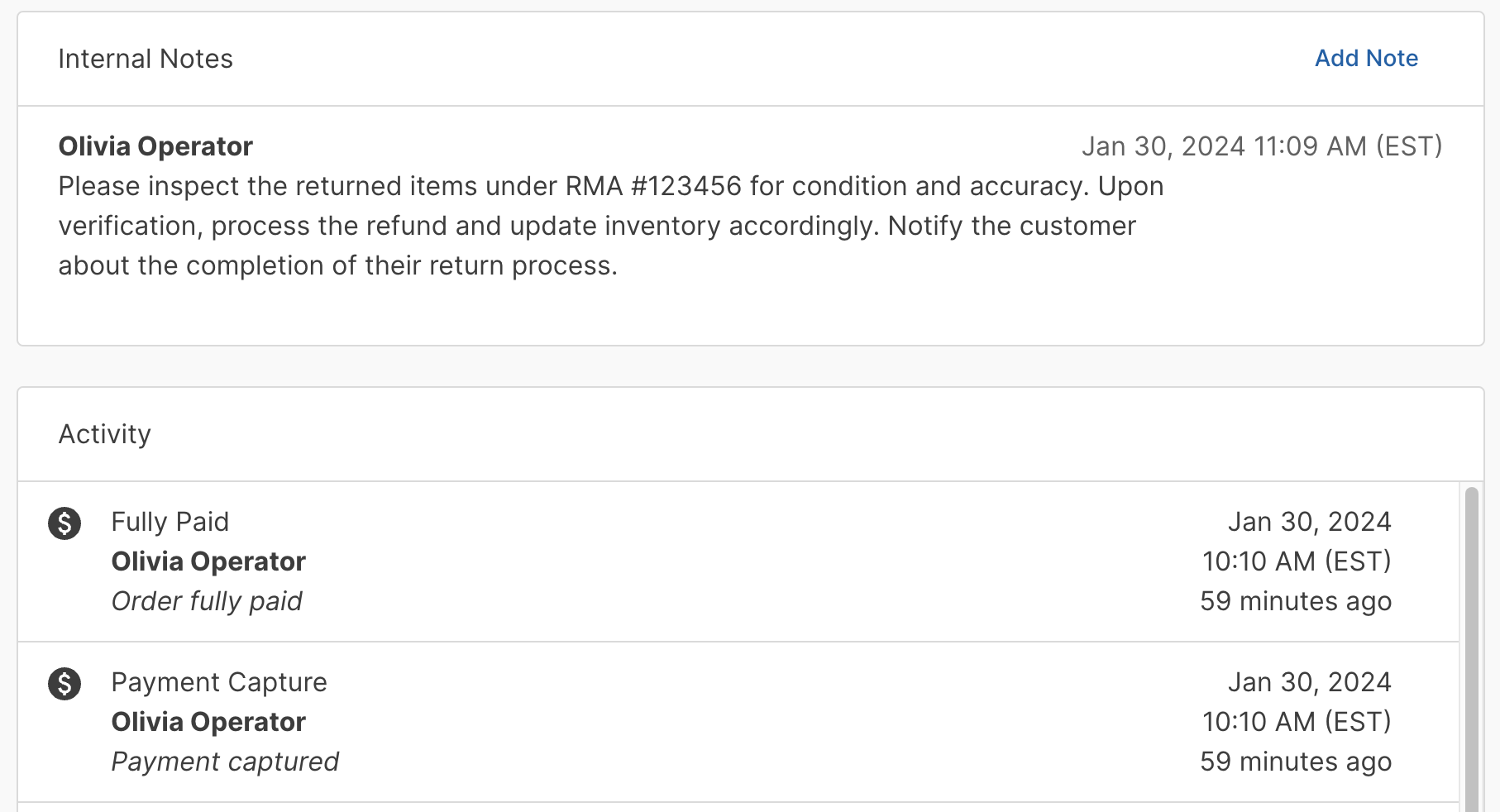Returns
Returns are eligible for fulfilled items within an order and can be initiated either through the marketplace order, the seller order, or directly by the buyer from your storefront integrated with our API.
Your customer service team can authorize or decline return requests after verifying the return details and your marketplace policy.
Returns, refunds, and inventory updates are all individual processes that must be performed separately.
Process a return
Both marketplace operators and sellers can process returns, provided they can access the order and have the "Manage fulfillments" permission granted through their permission group.
-
In the Dashboard, navigate to Orders > Orders, and select the order you want to perform a return for.
A return can be initiated from either the marketplace or seller order. -
Select the Returns button on the page's header.
-
On the Return page, set the Quantity of each line item being returned.
noteItems on the Return page are organized by fulfillment. Only fulfilled items are eligible for return.
-
To proceed with the return, select Authorize return.
The return is created and added to the order in the Authorized state.
Tracking returns
After you authorize a return, a return fulfillment section appears on the order. This allows you to monitor the return status of each seller order.
The order will still display the original fulfillment section. This includes shipping information for when the items were sent to the buyer.
Add staff return instructions
On the order page, you can leverage the Internal Notes section to add internal details about the return like an RMA number or processing instructions for marketplace or seller staff.

See Manage staff order notes for more information.
Return statuses
Return statuses help you manage the progress of returned products. These statuses can be manually updated in the Dashboard or programmatically updated with API integrations.
The following table outlines each status:
| Status | Description |
|---|---|
| Requested | The buyer has started a return request. For example, they received the wrong size, the product was not as described, or received damaged goods. |
| Authorized | The return meets the return policy and is approved for sending back. |
| Declined | The return does not meet the return policy. Examples include being outside the return window or a final sale item. |
| Received | The returned products have been received and are ready for inspection. |
| Complete | The products have been received, inspected, and meet all marketplace and seller return requirements. |
| Cancelled | The return was initiated by the customer but cancelled, for example, if the product was not sent back or the customer decided to keep the product. |
What to do after a return
After completing a return, you may need to take further steps:
- Update your inventory. Inventory levels don't automatically adjust after a return. Make sure to update inventory when you receive the returned items.
- Issue a refund. Refunds aren't automatic. If needed, manually process the refund to the buyer.
- Inform the buyer. Keep the buyer updated on the status of their return.